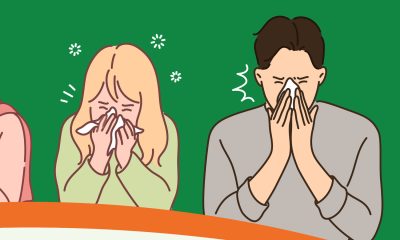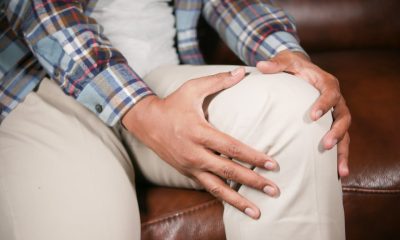By Mark Waghorn via SWNS
New research says snacking on burgers, sausage rolls and biscuits - or guzzling fizzy drinks - leads to risk-taking behind the wheel.
Scientists were able to identify higher accident and driving conviction rates among those with poor diets.
The study of 817 Estonians adds to evidence service station treats endanger lives.
"We were able to pick out lots of associations between everyday risk-taking and risky driving," said lead author Tonis Tokko, a PhD student at the University of Tartu in Estonia.
"For example, we found subjects who drink energy drinks at least once a week was twice as likely to speed as those who didn't consume them as often.
"We think it may be related to a need for excitement, rather than the drinks themselves being a direct cause of traffic violations.
"The drivers' underlying psychological makeup may lead them both to speed, and to want to consume more energy drinks or junk food."
They completed a series of questionnaires to measure impulsivity and aggression. Blood samples were also taken for genetic analysis.
Police and insurance database records showed 137 participants who had been cautioned for speeding tended to have faster reaction times.
But they but also scored higher on physical and verbal hostility, undertook more strenuous exercise and ate more junk foods - including energy drinks.
"Similarly, our psychological tests showed those with fast decision-making skills were 11 percent more likely to speed, and those with higher excitement seeking were 13 percent more likely to speed," said Tokko.
Two-thirds of drivers in the UK admit eating junk food behind the wheel. Over half say they are more likely to eat poorly when in the car.
Brits spend a whopping $1.7 billion on service station snacks each year, with sweets the most popular choice for hungry motorists.
But the increase in calories isn't the only problem to consider when eating on the road.
High sugar and fat content may briefly increase alertness, but it can cause a reduction in concentration levels and mood.
Drivers can be charged with careless driving if they cause an accident while eating.
The charge carries a $135 on-the-spot fine and three penalty points on your license if stopped by police.
And in more serious cases, or those that are contested in court, the charge can attract a maximum $6,800 fine, up to nine penalty points, and even a court-imposed driving ban.
The researchers have now found a psychological connection between eating junk food and driving convictions or accidents.
It is associated with a gene that metabolizes serotonin - a brain chemical targeted by antidepressants.
"Driving history is an excellent platform to study behavioral regulation," said Tokko.
"Most people drive, and driving convictions or accidents are objective records - they remain in databases.
"We found significant associations exist between risky traffic behavior and a range of lifestyle behaviors, such as undertaking strenuous exercise, alcohol consumption - or junk food and energy drink consumption."
His team found mutations that carry the neurotransmitter serotonin were associated with risky driving.
"We found certain gene variants are associated with risk-taking behavior in both driving and in other areas of life. But this is an early finding and still needs to be confirmed," Tokko said.
The Estonian Psychobiological Study of Traffic Behavior which began in 2001 is the first of its kind.
"We are able to follow various driving-related factors over a period of years, including psychological behavior, blood tests to understand biological changes and genetics.
"We also have a firm idea of which of these drivers have committed traffic violations or have been in accidents. We believe this to be a unique system.
"This study shows people who are reckless in traffic also tend to take chances in other areas of life. Our research shows there may be a biological tendency to this behavior."
Dr. Oliver Grimm, a psychiatrist at the University Clinic Frankfurt, who was not involved in the research, described it as "very interesting,"
"It is already known from large registry studies that ADHD (attention deficit hyperactivity disorder) and traffic accidents are more common in adults," said Grimm.
"This specific study from Estonia now helps to better understand how this accident-prone group is constituted from both the genetic risk and personality traits."
"This study adds to other work showing psychological and biological traits are linked to how people behave in the world," said Professor Oliver Howes, a molecular psychiatrist at King's College, London.
It was presented at a meeting of the European College of Neuropsychopharmacology in Lisbon.
Two years ago a study of almost 400 China lorry drivers in China found those who ate plenty of fried foods - such as the traditional trucker's breakfast - were worse behind the wheel.
Junk food diets and unhealthy snacks could contribute to fatigue - which may lead to dangerous driving, they added.

 Parenting1 week ago
Parenting1 week ago
 Lifestyle1 week ago
Lifestyle1 week ago
 Wildlife3 days ago
Wildlife3 days ago
 Good News4 days ago
Good News4 days ago
 Health4 days ago
Health4 days ago
 Entertainment1 day ago
Entertainment1 day ago
 Broadcast7 hours ago
Broadcast7 hours ago
 Work2 days ago
Work2 days ago

























